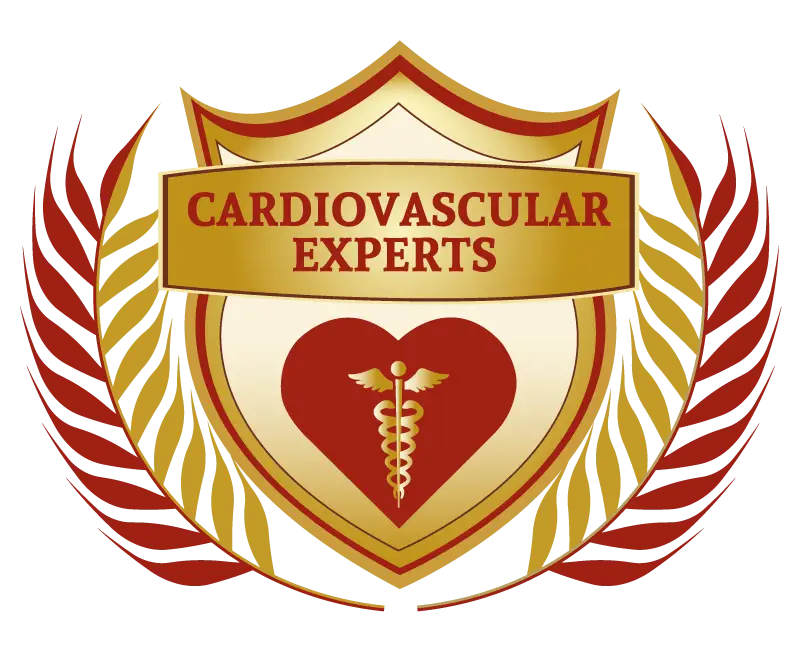CARDIOVASCULAR EXPERTS

Each February there is a renewed call for heart health awareness. It’s evident in the local and national news media, in the commercials we see, and in the fundraisers we support. Never has heart health awareness been more important than now – and I urge everyone to pay close attention.
It can be difficult, however, to cut through the clutter of all things COVID. We are bombarded daily with details on new case counts, new strains and new symptoms. While this information is vitally important, so is listening to your own body. COVID is scary. But delaying care for yourself can be even scarier, especially when it comes to your heart.
According to the Centers for Disease Control, someone has a heart attack in the United States every 40 seconds. Heart disease is the leading cause of death for both men and women. With heart disease, prompt action is critically important, which means knowing the warning signs of a heart attack.
A heart attack, also called a myocardial infarction, happens when a part of the heart muscle doesn’t get enough blood. The more time that passes without treatment to restore the blood flow, the greater the damage to the heart. For this reason, we all must listen to our body. When we have any of the following symptoms below, it is especially important to talk to a health care provider – whether your primary care provider, your cardiologist, or even a trip to the ER.
Please do not delay your care.
The major symptoms of a heart attack are:
Women can experience heart attack symptoms in different ways than men, such as unusual or unexplained tiredness and nausea or vomiting. Women also sometimes have pain in the throat or upper abdomen.
Regardless of gender, if your body is giving you signals, it’s important to listen.
Though the symptoms mentioned above can overlap with other conditions, it is important to take them seriously. For example, if you are having shortness of breath, don’t assume you have COVID. Or if you are having chest discomfort, don’t just chalk it up to a strained muscle from shoveling. Take a moment to evaluate how you are feeling overall. If you are concerned, call your doctor’s office for advice on what to do next. Don’t be afraid to call 9-1-1 if you feel like your life is in danger. Remember, the chances of surviving a heart attack are better the sooner emergency treatment begins.
If you or someone you love has known heart disease, it is vitally important to continue with prescribed care, which could be in the form of medication, diagnostic testing, or even follow-up office visits. With the latest spread of COVID-19 and the Omicron variant, simply stepping out of the house can seem overwhelming. It’s important to know you have choices for where you seek your heart care.
To make a routine trip to the cardiologist less stressful for patients, some offices – mine included – have decided to set up shop outside of the typical hospital-based setting. These offsite locations offer advantages for combating COVID-19. They have a smaller building footprint, which means fewer visitors and fewer staff members. This combined with other mitigation strategies such as masking and disinfecting further limits the spread of COVID-19.
Looking to the future, there is legislation pending in Pennsylvania right now that would allow patients access to advanced cardiac care in an outpatient setting, such as these smaller clinics. Right now, however, patients are forced to seek heart catherization procedures in hospitals only. But, if this legislation passes, all patients will have expanded choices.
As we celebrate February and Heart Health Awareness Month, I urge you to learn all you can about heart health and heart care. Your health is what counts. You have the power to make choices that set the stage for better heart health.
Dr. Rajesh Davé, MD FACC, FACAI, is an interventional cardiologist and Chief Medical Executive for Cardiovascular Experts of PA, LLC, located at 3040 Market St., Camp Hill. He routinely trains physicians on advanced interventional techniques to help restore blood flow, and hosts thousands of physicians in person annually at his conference, C3conference.net and online for advanced interventional training at interventionalacademy.com. He is board certified in Cardiovascular Disease, Interventional Cardiology & endovascular medicine, and has performed over 10,000 leg procedures, sparing many patients limbs from amputation. Moreover, he routinely performs heart artery stent and valve replacement procedures. Patients are routinely referred to him for second opinion from all over the US and the world.
To request an appointment, call (717) 727-0480. Or contact him via personal email at Info@CardiovascularExperts.com.

Our team at Cardiovascular Experts are top minds in cardiology focused on patient health, happiness, and long-term results for better lives.
Cardiovascular Experts of PA & Advanced Limb Salvage Center. Pottsville, PA | Camp Hill, PA. ©2024 All rights reserved. Privacy Policy. Content last updated — 07|25|2024. WP 6.6.